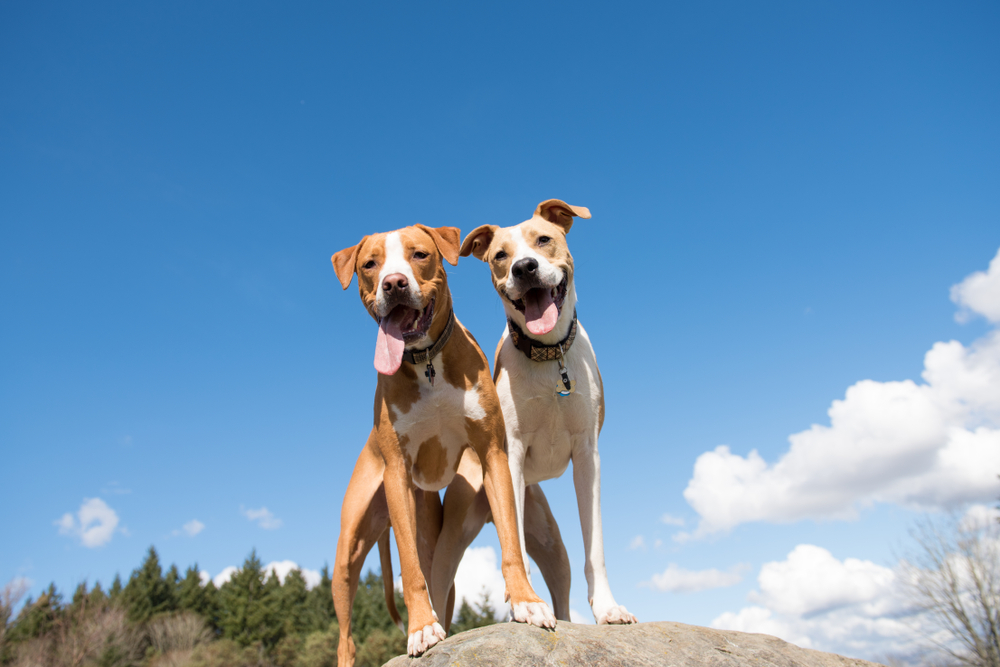
The term socialization means to learn to be part of society. This is something that young animals as well as young humans need to do in order to grow and develop into happy and confident adults that can cope with a variety of situations and communicate appropriately within their social group.
At What Age Should I Begin Socializing my Dog?
Socialization should begin as soon as a puppy is born and continued long after it leaves its mother and goes to its new home. The most crucial time is between the ages of 8 weeks and 4 months of age. At this age, your new dog is receptive to new things and will not yet have learned to be afraid of others. 8 to 12 weeks of age is sometimes known as the fear imprinting period. This is because any scary events that take place at this age are likely to imprint onto their memory and be remembered for life – and this can cause them to become anxious and frightened as they get older. Therefore, the more positive experiences you can give your puppy around this time the better.
Some experts state that a puppy should meet as many as 100 different people within the first 12 weeks of their life. This may sound like a huge number, but if you take them out and about with you, you’ll soon find people are swarming up to meet them. Let your puppy lead the introductions, but they will soon start loving the attention and before you know it, they will have met people of all ages and appearances.
Socializing a Dog With Children
It’s important to be aware that socializing an animal with children can be very different from adults. After all, children are unpredictable, loud, and playful – and they too don’t always know the best way to interact with pets. Whenever your puppy is around children, keep a close eye on them so that they don’t become overwhelmed. Let your dog approach children at their own pace and set the tone for the meeting. Don’t let them meet any kids who aren’t familiar with how to behave around dogs as this could just confuse them.
Socializing Isn’t Just About Meeting New People
Many people think that pet socialization is only about being introduced to lots of people and other animals. However, places and experiences are just as important. Expose your new puppy to different ground surfaces such as concrete, sand, grass, and woodland, take them out both day and night and at different temperatures and get them used to noise from traffic and children. Every time they cope well, reward them with a treat and lots of love and affection, and they will soon make positive associations with each experience.
Socializing by Other Caregivers
Socializing doesn’t only happen when your dog is with you. If you enroll your puppy into doggy daycare or you need to place them in boarding for a few days or weeks, they will have the opportunity to socialize with other dogs if you wish them too. This may involve walks with other animals, as well as free time to play together. We are delighted to offer socialization options for dogs staying in our care.
Can you Socialize an Older Dog?
Early socialization may be ideal, but this doesn’t mean that it is too late to socialize an older dog. They’ve probably missed out on interacting with large groups of dogs and people at parks and other social situations and this means that they may act shy or fearful when they are first introduced to new people and pets. Generally speaking, owners will need to use more patience when it comes to socializing an older animal since old habits can be harder to break, and your dog may have had fear imprinted on them due to negative experiences early on in life. Daily walking is one of the best ways of socializing a dog of any age, but you could consider training classes if you want to benefit from a professional approach.
For more advice on puppy socialization, don’t hesitate to speak to our expert veterinary team in Cumming, GA.










